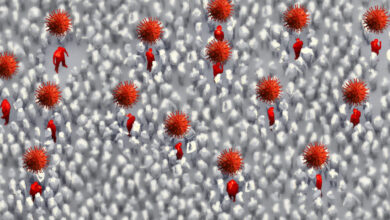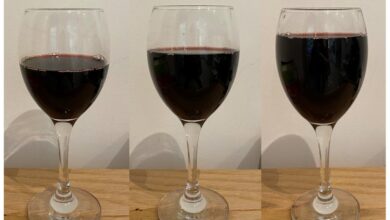Health Communication Is Suffering From Lack Of Relevant Community Engagement

Physician conducting avenue schooling and outreach
Francis Tatem, Grapevine Well being
All through the pandemic, most of my work has concerned listening to the group—-on the road, just about throughout Ask the Doc periods, on Clubhouse, by rumour and even studying textual content messages. Most lately, a mom sitting in a clinic ready for her son’s vaccination texted me for reassurance that she was making the precise choice to have him vaccinated. Encounters like this present instructive and humbling insights about how and why, regardless of practically two years of multi-media communication campaigns and messaging, efforts to speak advanced well being info are failing. Tales and observations from our group outreach can information us towards extra responsive and related well being communication methods for the group.
The scientific group missed a once-in-a-generation alternative to construct belief and talk the worldwide relevance of science and analysis. We’ve got arrived at a second by which the world is now extra attuned to well being, science and medication than ever earlier than. However our well being communication failures have deeply eroded belief in science, scientists and well being policymakers. Conflicting professional opinions and evolving info with insufficient explanations have led to doubt and mistrust in the neighborhood. For instance, we heard CDC masking and social distancing suggestions had been perceived as arbitrary relatively than primarily based on scientifically credible info. Final 12 months once I requested a gaggle about sources of trusted well being info, a lady spoke derisively about CDC shifting the social distancing coverage from “six to a few ft in a single day.” Her remark displays group views on what appears like sudden and baseless coverage selections by decision-makers and the way efficient communication isn’t reaching the group. Consequently, individuals are tuning out.
The suggestions from the group additionally suggests a necessity for humility in speaking science. Though epidemiology is rooted in information, we have now failed to assist folks perceive that science isn’t all the time actual and that this doesn’t preclude our capability to plot and implement credible insurance policies and proposals. A number of folks have associated their disinterest within the graphical presentation of pandemic information. This strategy is impactful for lecturers however typically woefully insufficient to achieve the group.
Individuals crave entry to trusted well being info and in its absence, depend on the grapevine and social media. When I’m out on the road having informal conversations, folks freely share their sources of well being info. The 2 most typical sources look like grandmothers, which means somebody senior to them, and ‘they,’ as in “‘they’ say the vaccines are monitoring you.” The identification of ‘they’ is commonly elusive, however probing concludes that each are proxies for rumour.
A younger man who was vaccinated at his grandmother’s insistence had not heard of the Omicron variant. He admitted to by no means watching or studying information and relied solely on Instagram, YouTube and his grandmother for his well being info. Many others had additionally not heard about Omicron, and when requested about sources of trusted well being info, they cited social media and YouTube. It isn’t stunning that folks misplaced amidst a sea of conflicting well being info will flip to non-public, relatable and casual however trusted sources of data.
As for the way folks determine whose phrase is reliable, for a lot of, it’s about ‘likes.’ One girl stated, “We go along with whoever appears like they know what they’re speaking about, and if it is smart to me, I’ll go along with them.” These reactions recommend that along with conventional channels, we should additionally ship science and well being info by non-traditional media channels like social media and trusted group messengers.
Individuals are typically deeply confused by science and its processes and do their finest to assimilate advanced well being and scientific info. Throughout an Ask the Physician session a lady requested, “Why do I have to be vaccinated if my Covid take a look at was detrimental?” The query and numerous others prefer it present perception into how our well being communication isn’t successfully reaching or educating many communities concerning the fundamentals of science, analysis and medication.
Subsequently, we should ship well being info that’s nuanced and tailor-made by context to assist folks perceive the ‘how’ and ‘why’ of science and medication. Typically I’ve described vaccine mechanisms as a membership bouncer deflecting an undesirable patron or a gown rehearsal making ready for the precise occasion. In responding to a query about breakthrough infections, I lately watched one other scientist describe Covid vaccines as a bulletproof vest defending from extreme damage relatively than contact with a bullet. His analogy strongly resonated with the viewers and led to further dialogue and even a number of folks accepting vaccination.
Lastly, as a result of well being communicators too typically take the listener’s data without any consideration, folks specific a have to conduct their “personal analysis.” This course of requires sifting by on-line medical and scientific jargon, leaving them to attract conclusions which may be incorrect. A person who informed me he does his personal analysis described his course of as google first, adopted by studying abstracts from Medline searches and consulting a web-based medical dictionary for phrases he doesn’t perceive. Afterward, he socializes his conclusions amongst folks he believes are extra clever than he’s. His well being selections are in the end primarily based upon no matter appears most sensible for him. His course of conjured photos of a courtroom with legal professionals battling for the jury’s consideration. It validates the necessity for supply of credible well being info that’s extra relatable, simplified and jargon-free.
Covid info fatigue is rising and a spotlight is reverting to non-Covid well being circumstances and social points. A couple of weeks in the past, once I was on the road, I approached a lady to ask her about Covid vaccinations, and he or she responded, “No thanks. I’m uninterested in speaking about Covid. Are you able to assist me with housing?” Many others have prevented questions on Covid and pivoted to acquire handy, non-judgmental info to higher perceive if they need to fear a few symptom, ask ‘why’ or get intel about their medical circumstances. One man walked by tired of a Covid-related dialog and some seconds later returned to ask if we may assist him discover a good orthopedic surgeon. On one other day, a lady hospitalized with pulmonary embolism was discharged and instantly approached me on the road to overview her discharge paperwork. She requested for assist to grasp her subsequent steps.
Greater than ever earlier than, there’s a evident want to handle the group’s well being info and social help wants, particularly the weak. Covid information could also be predominating on the airwaves however as curiosity in Covid info fades, our outreach exhibits us folks wrestle with well being and social points pre-dating the pandemic, solely with fewer and fewer accessible well being help and assets.
How can we reply to this info?
We’re dropping misinformation and disinformation wars and leaving the group weak to misinformation. That is partially as a result of credible science messengers are usually not as plentiful and relentless as purveyors of misinformation in conveying well being info by non-traditional or new media info channels. But in addition as a result of we don’t persistently dialogue with communities to grasp their fears, considerations and misperceptions about science.
Subsequently, we should decide to adapting our well being communication methods to align with longstanding and pressing group well being info and engagement wants. We will begin by persistently listening to the group to deeply perceive the experiences that inform their beliefs and acceptance or rejection of credible well being info. The extra we perceive how and why we fail to ship impactful well being and science info, the higher we are able to reply.
To extra successfully attain the group with credible, data-driven well being info, we should disrupt the tradition of judgment and bias in opposition to speaking by extra relatable and interesting methods. I’m speaking to myself as a lot as anybody. These of us professionally reared in academia and nationwide coverage environments are steeped in a tradition and course of that creates limitations to delivering relatable and interesting communication. In a disaster, academia drives well being info supply. Lecturers and policymakers typically converse in jargon void of concrete, actionable info and usually discuss to one another relatively than the group. As well as, though many individuals, significantly in underserved communities, depend on social and digital media engagement for well being info, these info sources are usually seen as much less credible and authoritative as if educating and interesting by these channels is beneath us.
We’ve got to vary this and bridge communication gaps between scientists, policymakers and the group. This consists of exhibiting up in the neighborhood with authenticity, humility, openness and humanity. We will do that straight or by partnerships. Both method, except we heed these classes, when the subsequent pandemic occurs upon us, the belief deficit will stay, and we are going to see we have now made no progress in any respect.




